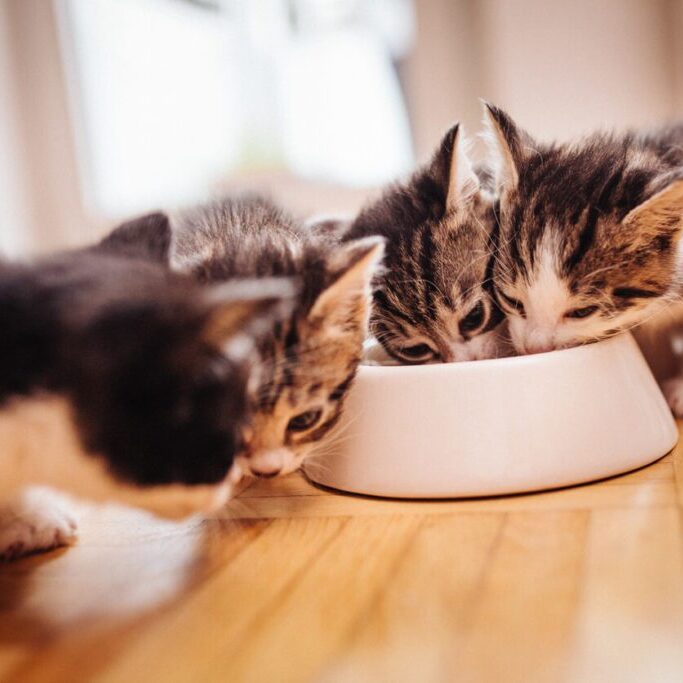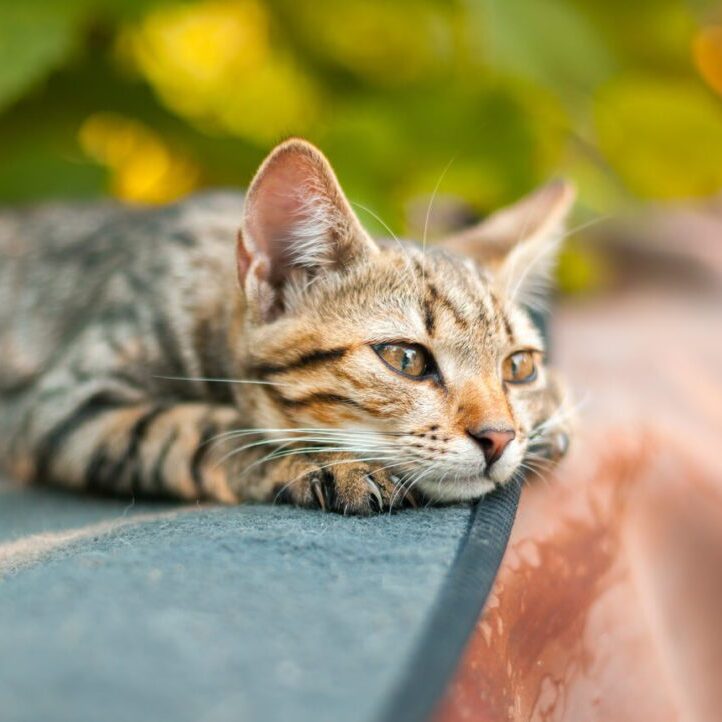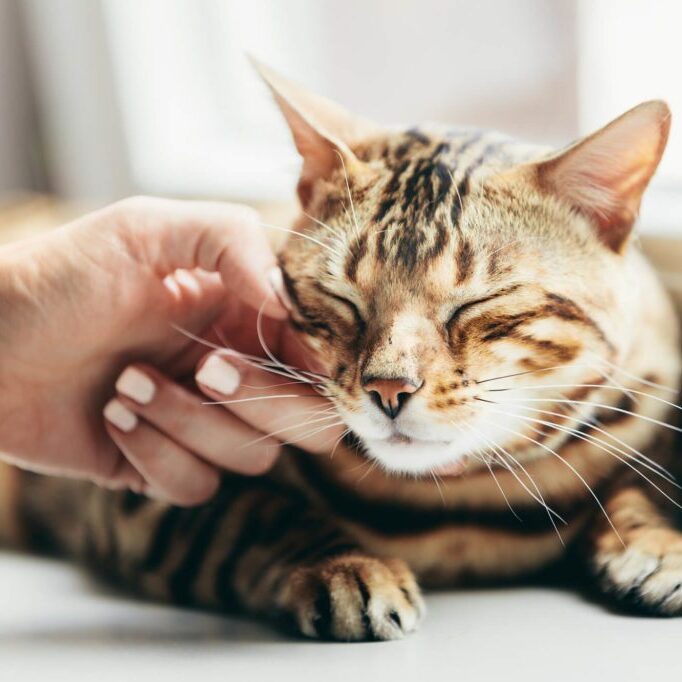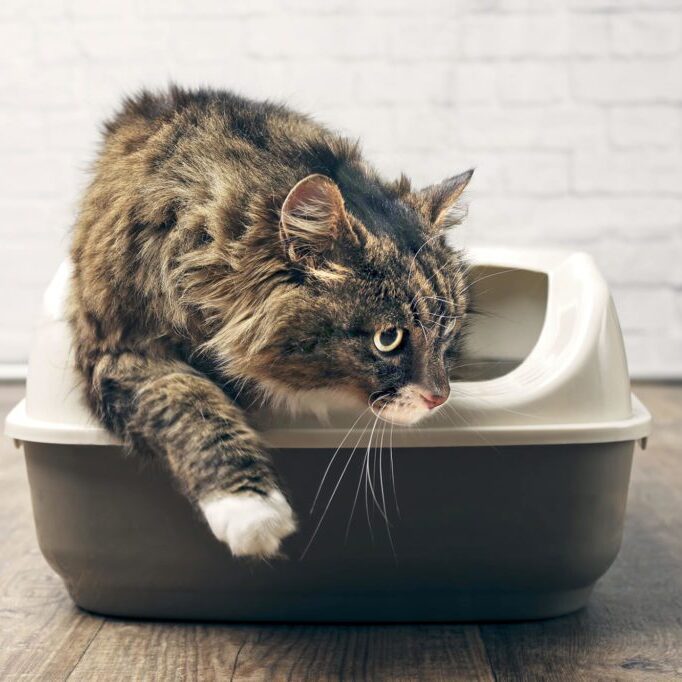Cats
All About Cats!

On this VetScoop podcast we’re talking all about cats! Do we need to protect our indoor cats from parasites? How do we help them scratch in all the right places? Should we let them go outside? Should we be worried about hairballs? What do we have to watch for as our cats get older? VetScoop hosts Dr. Natalie Marks and Dr. Evan Antin have tips to share on all of these topics and many more as we focus on our feline family members.
Dr. Evan Antin:
I think when it comes to nutrition, having a well-rounded quality commercial diet is the easiest and most effective way to just ensure that we’re providing the right nutrition for our cats. I think one big missed area for a lot of cats is when they’re masking pain. It’s because they have lesions in their mouth. And I think a lot of pet parents from the beginning, aren’t really comfortable necessarily opening up their kittens mouth or opening up their adult cat’s mouth. And so by the time they’re senior cats where we see a ton of dental disease, that can be really advanced by the time they actually come in because they haven’t eaten in several days.
Dr. Natalie Marks:
I think one of the things that I want to talk about are hairballs. Cause I think there’s a lot of misconceptions out there about are hairballs normal or what does it mean when my cat keeps getting hairballs? And what is it, what actually is a hairball. So I want to talk a little bit about that, especially again, for those first-time moms and dads out there that take a cat home and all of a sudden find a present in the morning on, on the floor.
Dr. Evan Antin:
A hairball is just an accumulation of hair. Like it sounds like. And so cats are really good about grooming themselves. And that’s one of the convenient things about having a cat. Uh, but when they’re grooming, of course, just like when we groom and if we comb our hair, we’re going to lose some hair. And when they’re grooming their entire body, they’re going to lose some hair as well. Keratin is what hair is made of and it’s not super digestible. So it tends to accumulate in the stomach. And once it gets to a certain point, they’re going to get rid of it and hack it up. Also it depends on your cat, you know, with my cats, they have relatively short fur. And so we don’t see a lot of hairballs here. Longer hair cats are where we tend to see most of the hairballs and it’s something we can expect to see on a regular basis. And it varies a little bit from cat to cat.
So if your cat does a hairball a week and that’s the normal for the last five years, I don’t get too concerned. But if it starts to affect them to the point where they’re having multiple bouts of vomiting, they’re not eating well, you’re starting to see that your cat has stopped grooming. That’s when we have to intervene.
Dr. Natalie Marks:
I want to spend a little bit more time on our senior and geriatric cats. There are some more needs, and I think more monitoring times that pet parents really need to do to focus on some pretty essential observations that will help you and also help us as veterinarians. Make sure we’re not missing something, especially if there is something going on, catching it early.
Dr. Evan Antin:
You see it in your cat spending more time hiding and just not engaging as much and just hiding under couches or beds or what have you, uh, you know, it’d be good to get, you know, consult with your local veterinarian. If there are changes in its appetite and it is eating less frequently, or not wanting to eat for whatever reason that can mean a lot of different things. As cats get older I think one of the most important things to monitor is their use of the litter box and in addition to their drinking. And increased and increased drinking and increased litter box use is a pretty common thing. And it can mean a lot of different things and we definitely need to look into it cause all of them can be really serious and potentially even life-threatening if we’re not managing them appropriately.
Did you find this helpful? Share it!
Recent Posts
About VetScoop
Pets make our lives better. At VetScoop, we’re on a mission to return the favor by giving you access to trustworthy, science-based information so you can provide the best possible care for your pets.
Related Posts We Think You'd Like





